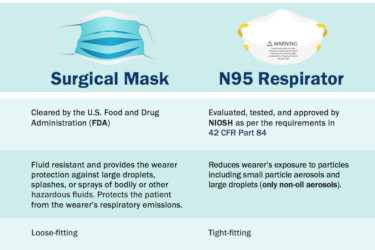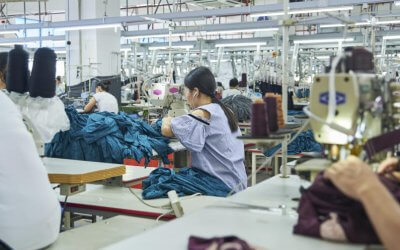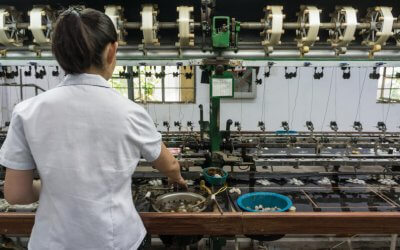Finding Good Mask Suppliers in a Desperate World
In the wake of the worldwide COVID-19 pandemic, entire healthcare systems have become stressed and the demand for Personal Protective Equipment (PPE) has gone through the roof.
Hospitals are desperate to get their hands on respirator masks and other equipment to protect their staff. Individuals are clamoring for surgical masks to wear when they go out. And to satisfy demand, factories in China have ramped up production to very high levels.
At first, the goal of these factories was to make masks and respirators for domestic use – it was forbidden to sell them internationally during the height of the initial outbreak.
With the outbreak in China now more or less under control, manufacturers are finally allowed to export their products. And as the demand for masks has shot through the roof, prices have shot up too.
One thing that we’re noticing, though, is that many of the people trying to source these masks either:
A) Have never purchased medical products before, or
B) Have little to no experience importing from Asia
Today, we’ll provide some important tips for importers who are trying to source these masks, so that they can be sure to get the right type of masks for their situation and avoid sub-standard quality.
Respirators vs. Surgical Masks: What is the Difference?
It is important to understand the difference between respirators and surgical masks.

Screenshot of CDC Infographic
They are tight-fitting, and an N95 respirator like the one in the infographic filters out 95% of airborne particles. There are different performance standards for respirators, such as:
- NIOSH (USA) – N95, N99 etc.
- EN149:2001 (Europe) – FFP2, FFP3, etc.
- GB2626-2006 (China) – KN95, etc.
- AS/NZA 1716:2012 (Australia/New Zealand) – P2, etc.
N95 respirators are roughly equivalent to FFP2, KN95, and P2 respirators, and each standard has other respirator classes that filter out more particles, such as N99 and FFP3.
Surgical masks serve a different purpose than respirators, in that they are designed to limit the spread of particles from the wearer to other people who are nearby.
They can be approved by the FDA or CE, and when worn by healthcare professionals, they protect the patient from respiratory emissions. When worn by an infected person, they prevent them from spreading the virus to others.
Many governments have advised the general public to wear surgical masks when they go out because the virus can be spread by asymptomatic carriers while it is still in the incubation period.
This article has some additional well-sourced information about surgical masks vs respirators.
So, what should you keep in mind when you are trying to buy surgical masks or respirators?
Some Advice to Help Those Sourcing Masks from China
When considering a supplier, the first thing you have to do is verify that you are dealing with a reliable source.
If you do not have any experience sourcing medical products, you may want to consider getting help from a sourcing agent to do this.

We suggest buying surgical or respirator masks from experienced factories.
When we are sourcing masks at Insight, there are certain procedures we follow. We will only buy them from factories that have been in business for 3 or more years. We will not work with companies that are too new to making medical or personal protective equipment.
Keep in mind that some factories have just gotten into this business during the last month, so be careful if you are considering working with this type of supplier.
You also need to see their certificates, and any documentation you receive from them should be verified online. You should ask them to show you any FDA/NIOSH/CE certificates they claim to have, and you should search the certifying body’s website to verify that the certificate number is real.
You also need to make sure that any certificates they have are specific to the product you are buying. For example, a factory might have an FDA certificate for syringes, but not for surgical masks. If so, they should not be using that FDA certificate in their marketing materials for this product.
Also, in order to confirm the performance of the masks you are purchasing, you should have laboratory testing performed on random units from your purchase order. This is advised for at least the first batch of product. You should also consider third-party inspections, such as pre-shipment or DUPRO inspections to ensure quality.
Be sure that you mention the above quality control measures to them in advance and include them in your purchase order when submitting so that they are fully aware of your requirements.
What are Your Thoughts?
Are you or anyone you know trying to source masks from China or other Asian countries? What challenges are you facing?
Do you have any experience in this area and want to share a suggestion?
We would love to hear your thoughts in the comments below.




There is also an ASTM F2100 standard that classifies masks performance.
There are several other ASTM standards that are applicable for masks including F2299, F2201, F1862 and F1494. ASTM is providing no-cost access to their standards for PPE during this period for standards relevant to the global health pandemic. https://www.astm.org/COVID-19/